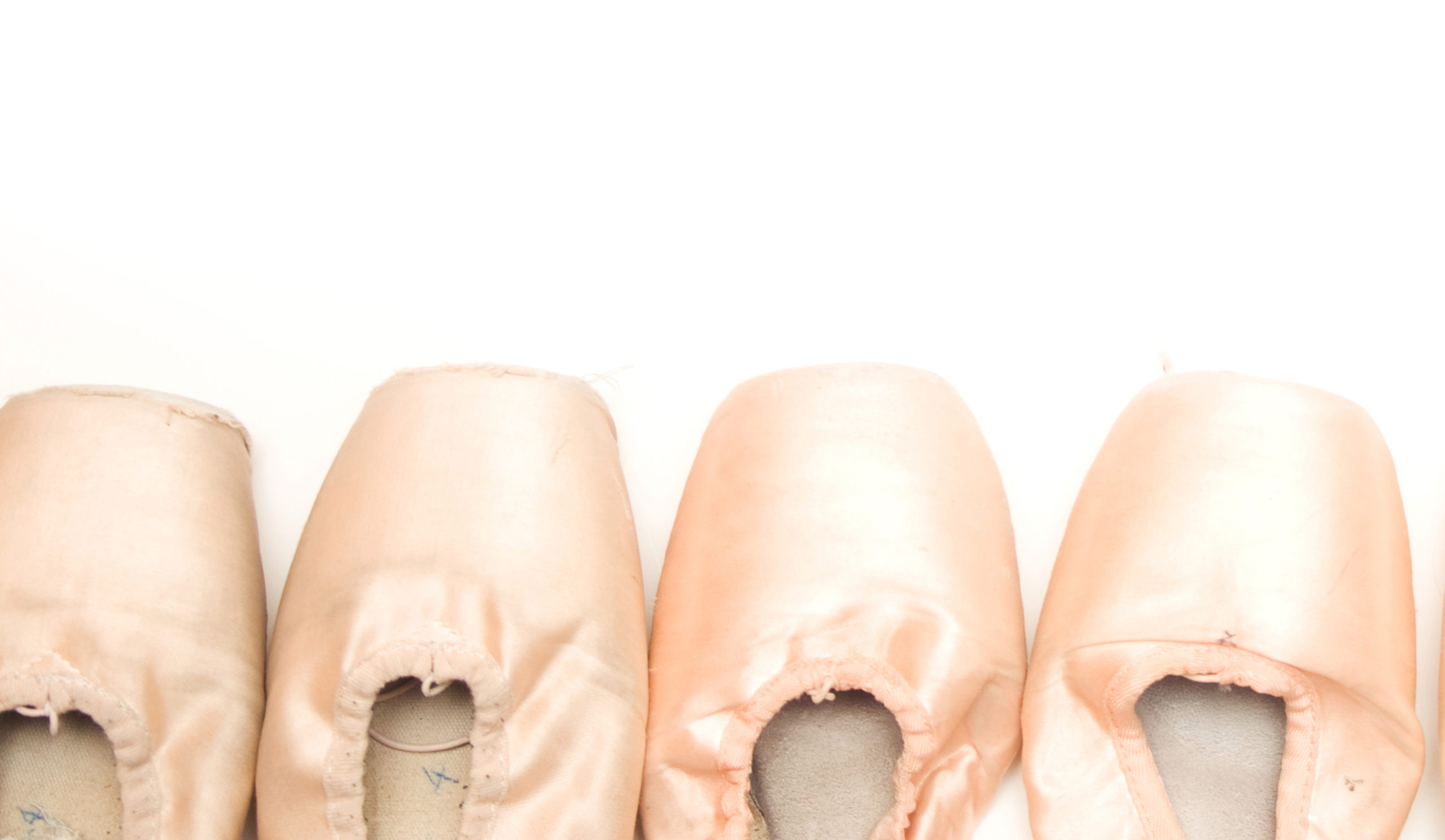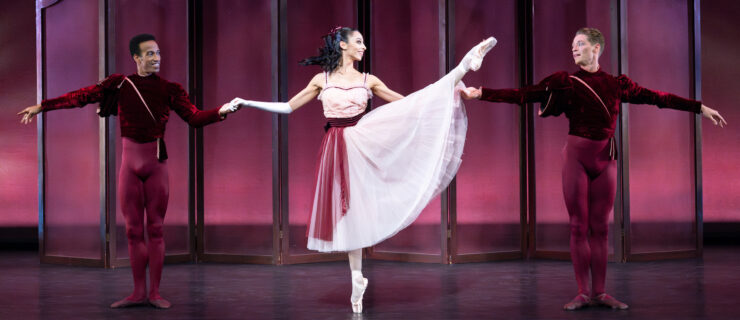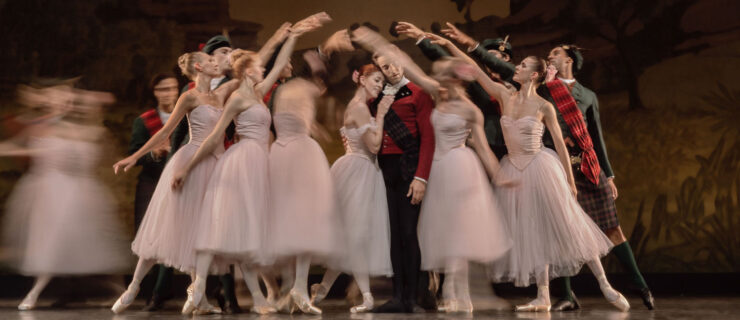Your Training: Is Summer Stressing You Out?
The summer I turned 16, my head swirled with “what ifs” as I counted down the days until the start of the Chautauqua intensive. I’d attended the program four years earlier, and the experience had been a harrowing one—my first lesson in the competitive nature of ballet. Leaving the temperate waters of my little pond, I’d found myself a very small, uncoordinated fish in a pool deep with talent. Now, I was going back to test myself again, this time in Chautauqua’s top level. Would I be as good as the other dancers? Would the teachers like me? Would I make friends?
Summer intensives are aptly titled. Their extreme demands can cause anxiety, nerves, jealousy and stress. But put down the question marks! Don’t let a negative state of mind keep you from soaking up everything your summer has to offer.
I Want to Be Asked to Stay for the Year-Round Program
As dancers, we set lofty goals: getting into the School of American Ballet, becoming a principal at American Ballet Theatre, being on the cover of Pointe! These are what Dr. Charlie Brown, a sports psychologist who consults with dancers from North Carolina Dance Theatre, calls “outcome goals.” While they’re important (they’re the stuff dreams are made of), you can’t measure yourself by these lengths alone. “More than anything else, a person’s confidence is based on how well they achieve their goals,” says Brown. Your goals shouldn’t only be things that are out of your control—like getting selected to stay for the year-round program.
A better idea is to create “performance goals,” such as consistently nailing triple pirouettes. These goals are more attainable and suited to your immediate abilities. But they can still be problematic, since obstacles like an injury or a slippery floor could prevent success. The best strategy is to make “process goals.” For example, instead of focusing on nailing triples, hold yourself accountable for executing the correction the teacher gave you the day before. After all, such corrections will help improve your turns, and showing you listen could land you a year-round spot.
I’m Afraid the Other Dancers Will Be Better Than Me
Ever heard the phrase “It’s all in your head”? In this case, it really is. “Stress is one of these things that you cause yourself,” says Dr. Alan Goldberg, a sports psychology consultant who works with junior to Olympic-level athletes. According to Goldberg, the high-caliber dancers aren’t making you nervous; they’re just giving you more opportunities to feel that way. “What makes us nervous is how we react to the circumstances,” he says.
Some of the other dancers might be more advanced than you. But focusing on their talent will only deplete your confidence and cause anxiety. Make a list of your worries and cross off anything that is out of your power (what level you’ll be in, if your feet won’t be as good as your peers’). Focus on the things you will be able to control (getting a proper warm-up, taking all corrections as your own). And remind yourself that you were selected for the program because you deserve to be there.
What if I Don’t Make Friends?
Pittsburgh Ballet Theatre apprentice JoAnna Schmidt was always afraid of being a loner. But, she says, “Remember that everybody is in the same boat: They may not display it, but they’re all nervous.” Don’t be afraid to sit with someone you don’t know at lunch; they’ll most likely be relieved that you did.
Being in competition with would-be friends can also be a barrier. But being friendly with your rivals is something every dancer needs to learn to do. “If you’re comfortable with the people you’re dancing with, it’s easier to grow together as opposed to just looking at each other as competition and nothing more,” Schmidt says. “It’s the same way in a company.”
I’m Nervous to Leave Home
Just as you’re most anxious to perform while waiting in the wings, the time leading up to your departure can be the most nerve-racking. Before leaving home, eliminate some of the stress by writing down a list of exactly what you want to accomplish during your summer intensive. It will help you to prioritize and keep your focus on what is essential. “One of the first things that happens under stress is that your memory starts going,” Brown says. “If you write things down, you just took away one of your demands because you don’t have to remember everything.”
Next, Brown says, gather your resources for the trip. Bring a few things that comfort you: a blanket your mother made, a photo of friends. Pack nutritious snacks so that you won’t have to look for healthy food options when you’re overwhelmed. “Make plans for regular contact with your support system,” he advises. Schedule a recurring Skype date with a friend or set up times to talk to your family on the phone. Once you arrive, scope out a quiet place where you can be alone when you want to be.
For me, that second summer at Chautauqua was one of the most fulfilling times of my dancing life—I knew that I deserved to be there. When I wasn’t cast as Aurora in the final performance of The Sleeping Beauty, I felt a little rattle of doubt. But then, on a sunny afternoon in July, I had the opportunity to rehearse my role as the Lilac Fairy alone in a studio with Patricia McBride, Jean-Pierre Bonnefoux and Violette Verdy—an absolutely spectacular time to be dancing in the moment.
Keep In Mind:
-The level you’re in doesn’t matter as much as how you shine where you’re placed. Your teachers work with lots of students in multiple levels. You’ll stand out if you’re at the top of your class.
-You might go to the wrong program, and that’s okay. Without summer intensives, we would set our sights on a school where we wouldn’t feel appreciated or take a contract with a company in a city we’d hate.
-If a fellow dancer is unkind to you, it reflects badly on them, not you. Not everyone deals with competition well. If another student is particularly rude to you, it’s probably because she knows you’re good. Use her attitude as a challenge to get even better.
CPYB’s New Men’s Opportunity
Central Pennsylvania Youth Ballet is updating its men’s program, and to celebrate, it’s offering up to eight new all-inclusive scholarships. “Male dancers have a different path than the girls,” says school principal Nicholas Ade. “We’re making sure to give them the tools they need for successful careers.” In addition to new strength-training sessions, the program is bumping up men’s classes to three days a week, during which teachers will break down specific steps from ballets the men are currently rehearsing.
The scholarships cover tuition and housing for two years. “We want to make an extended commitment so that once a dancer gets here, he can just concentrate on the work,” says Ade. Male students ages 14–16 can apply online by June 15; ages 17–19 can apply by August 1. All auditions are done by video. See cpyb.org.
Tip for Landing a Post-Summer Contract
“If you’re interested in dancing for a particular company, go to their summer intensive after your junior year in high school, and again after your senior year. The staff will see your improvement over time, and you’ll be more likely to establish a real connection. Don’t be afraid to talk to a teacher about your interest, and follow up with an email. Some people leave summer intensives with a new mentor—and an ‘in’ at a company.” —Michael Owen, director of dance at Walnut Hill School for the Arts






